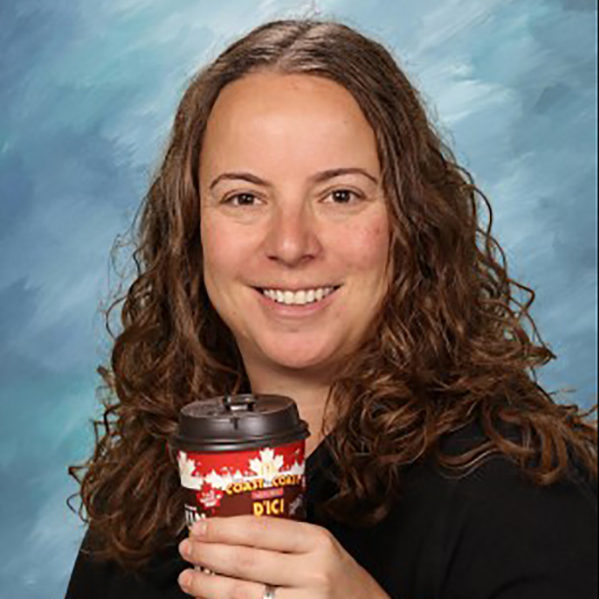Close your eyes and imagine that it’s the last week of June. The weather has been beautiful for a while now, and you are excited about your summer holidays. You can’t wait for camping, outdoor sports and spend-ing time with your family. It’s time for a well- deserved break from work. Just one thing is stopping you. Actually, more than one thing. You have to write final exams. The province needs to see where you are in science, social studies, reading comprehension, writing and math. To make sure, we’ll double up on math and make you do a timed portion without a calculator. If you have a government job and speak French, you will have to take the reading and writing exams in two languages.
Fast-forward to the last day of exams. It’s time for math. Math may be your favourite subject, or it may be the subject you struggle with the most. You may feel anxious right now just thinking about writing a math test. You have spent the past couple weeks writ-ing exams every day, and you are tired of multiple-choice questions and bubble sheets.
Imagine that you write the first part of the math exam in the morning. It’s difficult. You run out of time. You don’t get to finish. You can’t figure out why the test is trying to confuse you. You can’t figure out why all the questions are trying to trick you. You have a break for lunch, and then you have to write the second part in the afternoon. You are supposed to answer 20 questions in 20 minutes. It takes you five minutes to finish the first question. The answer is a fraction. It takes you another couple of minutes to figure out how to put the answer into the answer boxes and fill in the bubbles. Now your heart is racing, you are sweating, and you are starting to panic. Now you think that you are stupid because you aren’t going to have time to finish the test.
Imagine that you have trouble reading. Imagine that you have trouble focusing. Imagine that you are tired. Imagine that you are hungry. Imagine that you have test anxiety. Imagine that you just immigrated here a few months ago and this entire process has been done in your second or third language. Imagine that you have special needs. Imagine that you are struggling with your mental health. Imagine that your family is struggling at home. Imagine that you are a refugee. Imagine that you have all sorts of knowledge and ideas in your head that you can’t explain on a multiple-choice test.
Imagine that your boss gets a letter in the mail saying that you scored 18 per cent on the math exam. Imagine that you don’t get a promotion because of this mark. Imagine that this mark affects your future learning opportunities. You can’t go to certain conferences and training seminars because you aren’t good at math. At least, that’s what the test said. Imagine that you now believe you aren’t good at math and that you lack confidence to use math in your everyday life. Imagine that you tell your own children you aren’t good at math and that they now think it’s genetic. Imagine that you live the rest of your life trying to avoid math.
Now, imagine that you are 8 years old (Grade 3 provincial achievement test). Or 11 years old (Grade 6 provincial achievement test). Or 14 years old (Grade 9 provincial achievement test). Or 17 years old (Grade 12 diploma exam).
As an adult, would you like to be assessed, ranked and labelled? With a multiple-choice exam built to fit a bell curve? How about if you had to write exams in four subject areas? How about if you had to write exams in a language you are just learning? Just be-cause it happened to us as kids doesn’t make it right. Just because it’s how we’ve always done things doesn’t make it right.
Government, if you need data, why not use math and trust statistics? Why not use a sample population? Why not make it anonymous so that kids don’t pay the price?
We are preparing our children for jobs that don’t yet exist. Why are we still using standardized tests when we don’t want standardized learners and work-ers? We need flexibility, creativity, problem solving and perseverance—none of which can be assessed through multiple-choice tests.
We know better, so let’s do better. It’s time to end standardized tests in Alberta.
Alicia Burdess
Alicia Burdess grew up in St Albert, Alberta, and completed her bachelor of physical education degree at the University of Alberta, followed by an after degree in education at the U of A’s Campus Saint-Jean and a master of education degree through Simon Fraser University. She has been a teacher with Grande Prairie and District Catholic Schools for 14 years, serving in a variety of capacities. Her passion is teaching math and working with students and teachers to increase their understanding of and con-fidence in learning math. She spent four years as her district’s numeracy lead teacher and instructional coach. She is past president of MCATA and enjoys supporting math teachers through conferences and professional development. She is also a wife and a mother of two and enjoys spending time with family, coaching sports and reading.





